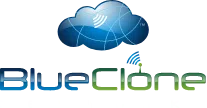In an era where technology disruption can mean significant downtime and lost revenue, small and medium-sized businesses (SMBs) across healthcare, finance, legal, and pharmaceutical sectors in New Jersey have turned to remote tech support NJ as a strategic solution for ensuring operational reliability and minimizing IT expenditures. Unlike traditional on-site response models, remotely delivered IT support services NJ allow businesses to access professional help instantly – whether the issue occurs in the office, at home, or across distributed locations. This article will explore how remote support brings convenience, flexibility, and measurable savings, particularly for regulated industries and organizations needing strict cybersecurity compliance services NJ.
Why SMBs Are Moving to Remote Tech Support in NJ
For SMBs in regulated industries, reliable technology is foundational – not just for productivity, but also for meeting compliance and security requirements. From maintaining medical records in accordance with HIPAA to managing sensitive financial data or client communications, these organizations require swift, expert intervention whenever technical problems arise. Remote tech support NJ offers a modern approach that eliminates the lag of waiting for onsite visits, making it possible to diagnose, resolve, and proactively prevent IT challenges in real-time.
The region’s unique business environment also shapes the adoption of remote IT helpdesk services. Central and northern New Jersey, with its cluster of healthcare providers, law firms, financial planners, and pharmaceutical firms, faces ongoing talent shortages and increasing technical complexity. SMBs may lack the resources for a full-time, in-house IT staff. Even for those with internal teams, the surge in hybrid and remote work models – accelerated by recent global events – puts integrated, cloud-based support at center stage. According to a 2024 MSP industry report, over 60% of New Jersey SMBs prioritized remote IT solutions in their annual technology budgets, up from just 35% five years ago [source: TechTarget 2024 MSP Trends Report].
Remote support isn’t simply reactive. Proactive monitoring and routine maintenance are at the heart of managed IT support Trenton NJ offerings, reducing downtime by identifying issues before they escalate. The result is a blend of accessibility, expertise, and efficiency not possible with conventional break/fix methodologies. For growing businesses constrained by time and budget, the shift to remote service translates into direct cost savings and indirect payoffs through enhanced system uptime and employee productivity.
Remote models also support a pivotal trend – the flexibility to adapt to sudden business demands or regulations, such as rapid compliance changes or unexpected cybersecurity threats. With robust remote delivery, everything from patch management and antivirus updates to backup verifications and configuration audits can be handled off-site, with detailed reporting for audits.
Finally, in regulated sectors like healthcare, legal, or financial services, there’s an added emphasis on safeguarding confidential data. Vendors specializing in IT support services NJ for these industries, such as Blueclone Networks, embed compliance automation and security controls directly within their remote toolsets, ensuring organizations meet HIPAA, PCI, or FINRA requirements without constant onsite oversight.
The Core Benefits of Remote Tech Support NJ for Different Industries
The impact of adopting managed IT support Trenton NJ extends well beyond cost savings or convenience. Each industry in New Jersey faces unique operational challenges and compliance responsibilities, and the right remote support model adapts to those specialized needs.
Healthcare: Ensuring Data Security and Compliance
For healthcare providers, IT downtime does not just affect productivity – in some cases, it can interfere with patient care delivery or lead to regulatory breaches. Remote tech support NJ ensures that electronic health records (EHR), telemedicine platforms, and practice management software are monitored around the clock. Using secure connections, remote IT helpdesk services quickly resolve issues ranging from application updates to connectivity failures, all while maintaining HIPAA compliance.
Advanced support teams are also able to automate compliance audits, ensure timely security patches are applied, and integrate multifactor authentication or encrypted communication as required under HITECH and HIPAA guidelines. With limited in-house IT, small clinics and group practices often rely on managed services to provide expertise in these complicated areas – transforming compliance from a drain on resources to a streamlined, value-adding process.
Legal and Financial Firms: Protecting Confidentiality and Supporting Hybrid Offices
Law firms and financial advisors handle volumes of sensitive client information, which must be both accessible and protected at all times. Remote tech support NJ facilitates not only rapid troubleshooting but secure access to document management applications, email accounts, and cloud storage platforms – whether from the main office or a remote working environment.
For many legal firms, the reality of hybrid work complicates traditional IT management. Remote IT helpdesk services can reset credentials, configure VPNs, and oversee secure communication channels, reducing risk and improving efficiency. Scheduled maintenance, encrypted backup management, and real-time security monitoring are handled without the disruption of onsite visits. And for clients in highly regulated environments, robust service providers deliver cybersecurity compliance services NJ that satisfy industry-specific mandates, such as FINRA’s cybersecurity requirements or PCI DSS for those processing payments.
Pharmaceuticals and Life Sciences: Streamlining Collaboration and Secure Research
Life sciences organizations must protect proprietary research data while enabling seamless collaboration across distributed teams. Managed IT support Trenton NJ often includes secure remote access solutions, role-based permissions, and proactive network monitoring for research labs and offices. Remote support agents, familiar with FDA data integrity standards, keep laboratory systems operational and compliant, all while reducing the need for physical presence during audits or updates.
Connect with Blueclone Networks to explore customized solutions for your business—book your discovery call today!
AI Integration and Co-Managed IT: Boosting Internal Teams
An emerging advantage of remote support is its ability to supplement in-house staff, especially for SMBs with limited or overstretched IT resources. Co-managed IT models blend the internal team’s business knowledge with the provider’s technical expertise. Through shared dashboards, automated alerts, and workflow orchestration, remote tech support partners deliver backup services, cybersecurity compliance services NJ, and even AI-based ticket triage – helping staff focus on strategic projects rather than time-consuming troubleshooting.
Remote technical teams can deploy virtual agents and automation to accelerate response time, ensure consistent documentation, and feed metrics back to business leaders. For healthcare clinics using AI triage or law offices deploying AI-powered research tools, remote management not only supports these platforms but helps uncover new efficiencies through analytics and process recommendations.
Core Components of Quality Remote IT Helpdesk Services in NJ
Not all remote tech support is created equal. To protect your business, support productivity, and maintain compliance, it is vital to understand what distinguishes superior remote IT helpdesk services from generic vendors or ad hoc, break/fix solutions.
1. 24/7/365 Availability and Fast Response
Technical disruptions do not obey business hours – especially in healthcare, legal, and financial environments where uptime is critical. Leading IT helpdesk services deliver true around-the-clock support, including real-time chat, phone, and email ticketing. Advanced remote support platforms also offer automated system monitoring and alerting, so issues are often resolved before users are even aware of problems.
A highly responsive, Tier 2 or 3 escalation process is essential for regulated industries, where delays or unsophisticated handling can result in lost productivity or compliance penalties. Look for providers who offer live regional support and facilitators with industry certifications (such as CompTIA, HIPAA Professional, or Microsoft certifications).
2. Secure Remote Access and Granular Permissions
Security is paramount for any remote connection. Effective remote tech support NJ models utilize encrypted tunnels (with protocols like TLS 1.2+), strict authentication, and granular access controls. Providers specialized in cybersecurity compliance services NJ maintain audit logs for every remote session, allowing clients to review and verify technician activity for compliance audits.
Further, best-in-class remote support tools enforce time-limited access, client approval workflows, and multi-factor authentication to prevent unauthorized connections. In instances where sensitive data may be involved – such as financial reports or patient information – these access controls are a must for HIPAA, FINRA, or PCI DSS compliance.
3. Comprehensive Issue Tracking and Reporting
Transparency is a hallmark of trusted IT support services NJ. Each remote session, ticket, or intervention should be logged and documented, with automated incident tracking and root-cause analysis. Clients benefit from clear reports identifying trends, such as recurring application crashes or frequent hardware issues, allowing for data-driven decisions about hardware investment or staff training.
Moreover, when managed IT support Trenton NJ teams deliver quarterly or monthly summaries, business leaders have greater insight into uptime, vulnerabilities, and compliance status, enabling proactive budgeting and risk management.
4. Proactive Monitoring and Preventive Maintenance
Leading remote IT providers go beyond incident response. Using automated agents and monitoring, they track the performance and status of servers, endpoints, and network infrastructure around the clock. Immediate alerts identify impending failures – such as disk space limits, malware signatures, or backup errors – so issues can be fixed before causing disruptions.
Scheduled software updates, patch management, and managed security scans are typically performed remotely, slashing the costs of on-site visits. In regulated industries, this also means businesses stay ahead of evolving compliance requirements, from regular vulnerability assessments to disaster recovery drills.
5. Integration with Existing Tools and Compliance Workflows
A modern remote IT helpdesk should seamlessly synchronize with existing ticketing systems, asset inventories, and compliance platforms. Whether using Microsoft 365, Google Workspace, or industry-specific solutions, providers skilled in IT support services NJ customize their workflows to reinforce current business processes rather than forcing disruptive overhauls.
For example, law firms may require email archiving integrated with compliance solutions, or healthcare providers might need direct interfaces with EHR systems for faster triage. Providers equipped to handle these integrations prevent bottlenecks and ensure all IT policies are enforced remotely.
6. Layered Security and Cybersecurity Compliance
Remote support services must uphold the same (or greater) security benchmarks as onsite IT. Critical elements include endpoint detection and response (EDR), encrypted communication, policy-driven firewall management, malware scanning, and least-privilege access protocols. Service providers specializing in cybersecurity compliance services NJ maintain up-to-date knowledge of state and federal mandates, offering built-in audit reporting and regular staff security awareness training.
For businesses with contractual or legal requirements to demonstrate their compliance posture, regular vulnerability scans, offsite backup verifications, and continuous monitoring can be bundled into managed IT support offerings. Providers that deliver compliance documentation and assist during audits can save firms both time and the risk of noncompliance penalties.
Proactive vs. Reactive: Redefining Cost Savings and Uptime
Reluctance to switch to a remote-first IT model often comes from a misconception: that remote support is necessarily impersonal or unable to resolve “physical” problems. However, industry reports show that over 80% of user IT problems – ranging from password resets and malware alerts to software errors and device optimization – can be resolved remotely without delay [source: HelpNet Security 2024 Tech Support Study]. Only a small percentage of hardware failures, complex networking issues, or emergency replacements still require onsite visits.
Measuring the True Cost Savings
The financial logic behind remote tech support NJ is compelling:
- Reduced Labor Costs: Clients no longer pay travel time or minimum onsite service charges, allowing for granular billing (per incident or per user).
- Faster Resolution, Lower Downtime: With immediate access to expert technicians, employees are back to work in minutes rather than hours or days – translating to less lost revenue.
- Predictable Spending: Monthly managed service agreements enable precise budgeting. For regulated businesses, this can cover not only routine support but also essential compliance services – eliminating the “surprise” of expensive breach responses or audit failures.
- Decreased Internal IT Burden: For firms with an in-house team, remote assistance covers time-consuming troubleshooting, freeing internal resources for innovation and higher-value projects.
Uptime and Productivity: Beyond the Balance Sheet
Operationally, the productivity gains are just as valuable. Employees benefit from rapid troubleshooting regardless of their physical location. Managers gain clear visibility into support incidents and recurring concerns, making long-term planning and training more data-driven. In regulated industries, demonstrating continuous uptime and incident response practices can be instrumental during compliance audits or client reviews.
According to a recent CompTIA survey on SMBs in the tri-state area, more than 65% of businesses using managed IT support Trenton NJ reported a measurable drop in critical downtime, with an average increase of 2.7 productive workdays per employee each year [source: CompTIA Business Tech 2024].
Strategic Value for SMB Growth
The most progressive businesses in New Jersey view remote IT helpdesk services not as a cost, but as a partner in long-term success. Advanced providers offer proactive technology roadmap planning, suggesting upgrades, efficiency improvements, or security investments well before they become critical. These insights help SMBs stay competitive in evolving markets and prepare for growth – whether expanding offices, merging with other companies, or launching new digital services.
Overcoming Security and Compliance Challenges with Remote Support
For the region’s healthcare, finance, legal, and pharmaceutical firms, tight regulations and the risk of cyberattacks necessitate more than “basic” technical support. Fortunately, the best remote tech support NJ solutions are specifically designed to help navigate regulatory minefields and actively reduce the likelihood of breaches or incidents.
Enhanced Security Protocols for Remote Assistance
Reputable remote IT helpdesk services employ comprehensive security measures to safeguard every remote session. These include:
- Encrypted session tunnels and access gateways that require dual authentication.
- Role-based access controls to limit which systems or data can be reached by technicians.
- Comprehensive logging and reporting for each remote connection, supporting compliance auditing for HIPAA, PCI DSS, SEC, or state privacy rules.
- Session time limits and end-user approval protocols, blocking unauthorized after-hours access.
For healthcare SMBs in particular, strict monitoring of PHI (Protected Health Information) access is enforced. Legal and financial firms benefit from session records that aid in demonstrating the independence of IT support from operational staff, maintaining client confidentiality, and supporting Sarbanes-Oxley or FINRA technical requirements.
Automated Patch and Vulnerability Management
Cybersecurity compliance services NJ are fundamentally tied to the ability to stay ahead of threats. Remote IT teams equipped with automated scanning agents can:
- Identify out-of-date or vulnerable applications.
- Push critical patches and security updates after-hours to prevent workflow disruption.
- Conduct simulated phishing campaigns and train staff through remote awareness modules.
- Provide detailed compliance reports, risk insights, and remediation tracking.
Through proactive vulnerability management, SMBs lower their exposure to ransomware, insider threats, or regulatory violations. Advanced support models even include next-generation EDR and threat intelligence feeds – with zero-touch remediation applied when malware is detected, all managed remotely.
Data Backup, Disaster Recovery, and Business Continuity
The cost of downtime or data loss is too high for regulated SMBs. Remote tech support NJ integrates offsite cloud backups and synchronized replication with automated monitoring and daily audit trails. Should disaster strike – ransomware attacks, accidental deletions, or disruption from physical events – remote teams can initiate failover, restore operations quickly, and keep compliance logs fully up to date.
Managed IT support Trenton NJ offerings typically include:
- Encrypted backups for email, files, databases, and specialized systems.
- Regular test restorations to verify data integrity.
- Custom retention schedules for industry-specific compliance (HIPAA, FINRA, etc.).
- Business continuity planning assistance, with playbooks and training delivered remotely.
Regulatory Readiness for 2025 and Beyond
With regulatory frameworks evolving rapidly in New Jersey and across the tri-state area, remote support providers are evolving too. Advanced firms offer risk assessments, policy reviews, M365/Google Workspace compliance checks, and continuous monitoring of new rules relevant to healthcare, legal, and financial clients. As a result, SMBs retain confidence that their IT systems – and technical workflows – remain certified-compliant, even as threats and regulations shift.
For example, healthcare groups concerned about the expanding reach of the New Jersey Data Privacy Act can rely on remote documentation, breach notification logs, and access control audits maintained by their IT partner. Law firms facing client-driven security demands leverage third-party managed remote SOC (Security Operations Center) services, without hiring internal cybersecurity officers.
Selecting the Right Remote Tech Support Partner in New Jersey
Making a move to remote tech support is a strategic decision, and choosing the right IT support services NJ vendor is pivotal for ongoing security, reliability, and growth. When evaluating providers, especially for regulated or security-sensitive environments, SMB leaders should look for a balance of technical capabilities, compliance knowledge, and localized expertise.
Key Criteria for Selecting a Remote IT Helpdesk Provider
- Industry Certifications and Regulatory Expertise
- Ensure that the provider’s technicians hold up-to-date certifications (e.g., CompTIA, Microsoft, HIPAA Pro).
- Ask for demonstrated experience serving businesses in your industry – healthcare, legal, financial – where compliance and confidentiality are paramount.
- Proactive Support and Transparent Processes
- Look for vendors offering clearly defined, proactive monitoring, preventive maintenance, and quarterly reporting.
- Transparent pricing models and access to ticket logs or audit trails build trust.
- Rapid Response and Local Presence
- While remote support is primary, a reliable provider can dispatch onsite help when hardware replacement, cabling, or physical upgrades are required – especially important for NJ-based offices.
- A regional understanding adds value, particularly in emergency compliance situations or when working with locally hosted data.
- Security-First Architecture
- Confirm use of encrypted, permission-restricted remote access.
- Investigate the provider’s own cybersecurity posture – are they regularly audited? Do they maintain cyber liability insurance?
- Integration Capabilities
- Select a partner with a track record of integrating support with the business’s existing productivity, email, and compliance suites.
- Customizable escalation workflows and integration with ticketing systems reduce service friction.
- Scalability for Growth and Geographic Expansion
- As SMBs grow, their support needs evolve. Ensure the provider can scale, support remote/hybrid workforces, add new regulatory frameworks, and adapt to changing business tech.
Local Leader Spotlight: Blueclone Networks
Leading providers like Blueclone Networks are distinguished by a blend of deep regional involvement and nationwide recognition. Based in Princeton, NJ, with coverage across Trenton, central New Jersey, and NYC metro, Blueclone delivers managed IT support Trenton NJ and advanced remote frameworks for healthcare, finance, legal, and pharmaceutical organizations. Their services stand out for rigorous cybersecurity risk management, compliance automation, and adaptability to fast-changing business needs.
Blueclone is committed to ongoing improvement, as evidenced by continuing education for their technicians and recognition in Channel Futures’ SMB MSP rankings. Comprehensive service packages, compliant with HIPAA, FINRA, PCI DSS, and state regulations, allow clients to operate confidently in highly scrutinized environments.
For SMBs weighing providers, client testimonials, locally referenced projects, and a transparent service model can serve as valuable vetting criteria.
The Future of IT Support: Remote-First, Always Secure, and Proactive
Looking ahead, the remote tech support NJ model is positioned to remain the preferred approach well beyond 2025. As businesses expand geographically, adopt hybrid work, and deploy AI-driven operational tools, the need for flexible, scalable support has never been greater. At the same time, cybersecurity risks and compliance obligations only intensify.
With a focus on:
- Zero-delay incident resolution via remote access,
- Automated compliance checks and 24/7 monitoring,
- Cloud-first productivity balancing cost and flexibility,
- Layered security built for SMB realities,
- And deep local knowledge reinforced by national best practices,
New Jersey’s SMBs can expect to maintain not just IT reliability, but a marked competitive edge through partnerships with leading managed IT support Trenton NJ providers.
Central to this evolution will be adaptability – the ability to integrate new security frameworks, automate routine tasks, analyze robust support data, and empower internal teams. For organizations aiming to grow smarter and operate securely in regulated sectors, the right remote support strategy becomes not just a utility, but a source of sustained advantage.
Frequently Asked Questions (FAQ) About Remote Tech Support in New Jersey
Remote tech support services for SMBs typically include 24/7 helpdesk access, real-time problem resolution for software and user issues, proactive system monitoring, automated updates and patch management, security incident response, and ongoing IT compliance reporting. Premium providers add layers like cloud backup management, employee training, advanced threat monitoring, and proactive IT consultations to align technology with business goals.
Yes, reputable vendors implement multi-factor authentication, encrypted remote sessions, role-based access controls, and detailed session logging to meet the privacy and security requirements for healthcare (HIPAA), legal (ABA, FINRA), and financial (SEC, PCI DSS) clients. These protocols ensure that client and patient data remain secure throughout remote interventions and that all activity can be audited during compliance reviews.
Remote tech support eliminates travel and on-site labor costs, enables faster resolution to reduce employee downtime, and allows SMBs to approach IT spending via predictable, subscription-based models. The ability to address issues quickly and proactively detect vulnerabilities or compliance risks also helps avoid the larger costs associated with data breaches, legal penalties, or extended outages.
While the majority of IT issues can be resolved remotely (such as software errors, account lockouts, and application updates), certain scenarios like hardware replacement or major network infrastructure failures may require onsite visits. Leading managed IT support partners in Trenton NJ, like Blueclone Networks, can dispatch local technicians for such needs as part of a hybrid service model.
Effective vetting should focus on provider credentials (certifications, regulatory knowledge), service offerings tailored to your industry, transparent SLAs and reporting processes, a proven track record in regulated sectors, and a clear escalation plan for both remote and onsite support. Reviews, client testimonials, and alignment with your technology stack are also critical. Consider a discovery call to assess fit and responsiveness before contracting.





